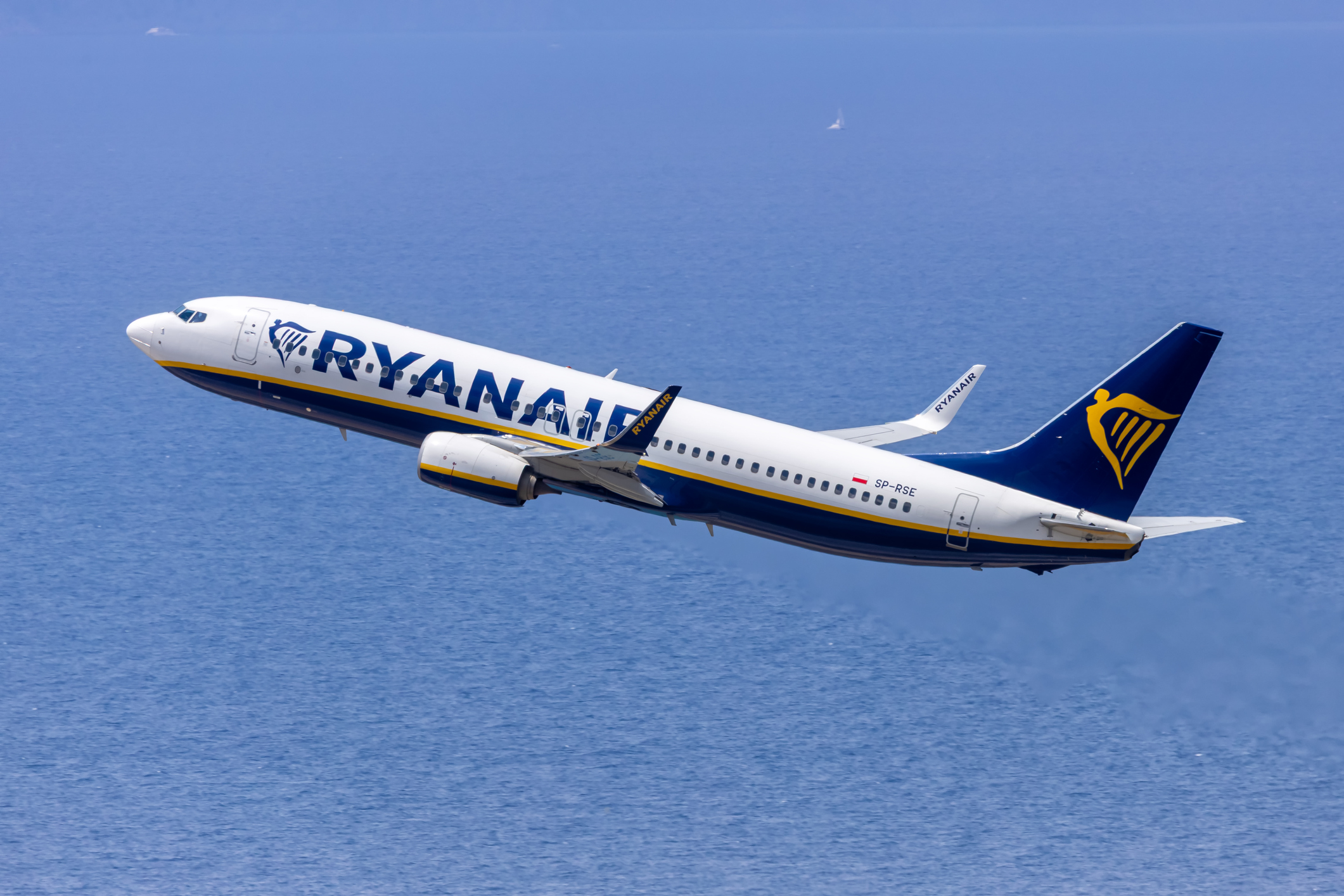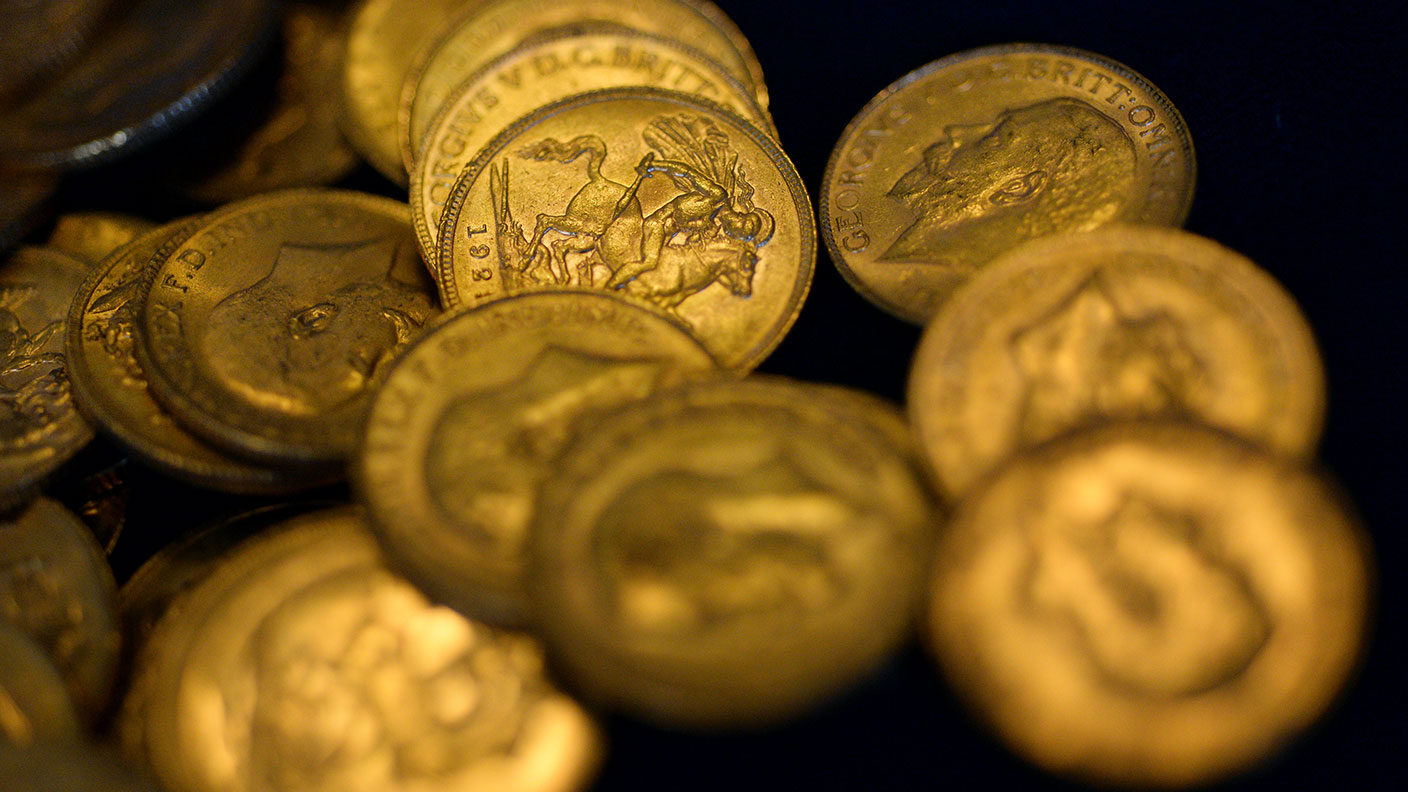It’s time for Ryanair to grow up
As a young upstart airline, a combative approach was just what Ryanair needed. Now it needs to mellow, says Matthew Lynn.

Get the latest financial news, insights and expert analysis from our award-winning MoneyWeek team, to help you understand what really matters when it comes to your finances.
You are now subscribed
Your newsletter sign-up was successful
Want to add more newsletters?

Twice daily
MoneyWeek
Get the latest financial news, insights and expert analysis from our award-winning MoneyWeek team, to help you understand what really matters when it comes to your finances.

Four times a week
Look After My Bills
Sign up to our free money-saving newsletter, filled with the latest news and expert advice to help you find the best tips and deals for managing your bills. Start saving today!

As ayoung upstart airline, a combative approach was just what Ryanair needed. Now it needs to mellow.
With its record of terrible service, cattle-truck conditions, and bullying extra charges, there are few companies with a worse reputation. Let's correct that. There are no companies with a worse reputation. And yet Ryanair's numbers are fantastic. With a market value of £12bn, it is the largest airline in Europe, overtaking all the old giants in a single generation. Measured by passengers carried, it is the fifth-largest airline in the world; measured by fleet size it is seventh. It is hard to think of another firm that has come from nowhere to take such a commanding position in one of the world's major industries at such a rapid pace.
Michael O'Leary was one of the greats
Its founding spirit, Michael O'Leary, is one of the great entrepreneurs of recent times. Ryanair was set up by millionaire Tony Ryan, flying a single plane from Waterford to Gatwick, and for its first few years it made no money. But O'Leary saw the potential for growth in the example of Southwest Airlines in the US, which had pioneered low-cost travel. He saw that Europe would follow, and indeed outpace, the US in deregulating air travel, and that that would open up a huge new market. Over the next couple of decades, Ryanair grew and grew, adding more and more planes and routes, and along the way reinventing the industry. EasyJet borrowed its model, with more or less equal success, as did a few other competitors such as Wizz Air, but most other rivals fell by the wayside. It has been a massive achievement, and a lot of that is down to O'Leary.
MoneyWeek
Subscribe to MoneyWeek today and get your first six magazine issues absolutely FREE

Sign up to Money Morning
Don't miss the latest investment and personal finances news, market analysis, plus money-saving tips with our free twice-daily newsletter
Don't miss the latest investment and personal finances news, market analysis, plus money-saving tips with our free twice-daily newsletter
He become famous for his pugnacious, combative approach to managing the business. "We don't want to hear sob stories," he once told customers. "What part of no refund' do you not understand?" He raged against inefficiencies, chewed out staff who didn't perform, and cheerfully abused customers, convinced that all they actually cared about was getting to their destination as cheaply as possible.
That was great for the growth phase of the airline's expansion. It takes aggression to barge your way into a heavily regulated, protected industry. There were a lot of vested interests to be pushed aside. Delivering dirt-cheap fares meant cutting costs to the bone, and that is never easy. Customers needed to be persuaded that the trade they made when they flew budget was that they would sacrifice some comfort and convenience for a good deal. Lots of loud-mouthing was needed to make that happen. Without it, the airline would probably still be flying a couple of turboprops up and down the west coast of Ireland.
Time for a quieter voice
The trouble is, that approach has outlivedits usefulness. In the last couple of years, even with O'Leary at the helm, Ryanairhad already started toning down its aggression towards its passengers.Some of the more outrageous extra charges have been dropped, and a softer tone has been adopted. That was badly needed.
Its main rival, easyJet, which has long since distanced itself from its founder Stelios Haji-Ioannou, has found a way of combining cheap fares with levels of service that, while not exactly deluxe, stay just on the right side of tolerable. So have many other airlines. Sooner or later Ryanair's miserable reputation was going to curb its expansion, and it may have already done so. The real opportunity now is to expand into medium and long-haul routes. But to do that, it needs a different approach. Flyers might tolerate Ryanair standards on a 120-minute hop from London to Barcelona. A 13-hour flight to Bangkok is something different.
Lots of founding entrepreneurs, which is what O'Leary essentially is at Ryanair, find it hard to move on. They cling on too long, and end up damaging the companies they created. Ryanair has the opportunity to become one of Europe's biggest businesses. But to get there, it needs to normalise itself. That doesn't seem likely while O'Leary is still around. The task of the shareholders is to find a way to persuade him to bow out gracefully. It isn't usually easy but if they can't do that, the business may never grow up or fulfil its potential.
Get the latest financial news, insights and expert analysis from our award-winning MoneyWeek team, to help you understand what really matters when it comes to your finances.

Matthew Lynn is a columnist for Bloomberg and writes weekly commentary syndicated in papers such as the Daily Telegraph, Die Welt, the Sydney Morning Herald, the South China Morning Post and the Miami Herald. He is also an associate editor of Spectator Business, and a regular contributor to The Spectator. Before that, he worked for the business section of the Sunday Times for ten years.
-
 Early signs of the AI apocalypse?
Early signs of the AI apocalypse?Uncertainty is rife as investors question what the impact of AI will be.
-
 Reach for the stars to boost Britain's space industry
Reach for the stars to boost Britain's space industryopinion We can’t afford to neglect Britain's space industry. Unfortunately, the government is taking completely the wrong approach, says Matthew Lynn
-
 Leading European companies offer long-term growth prospects
Leading European companies offer long-term growth prospectsOpinion Alexander Darwall, lead portfolio manager, European Opportunities Trust, picks three European companies where he'd put his money
-
 Ryanair share price struggles to regain altitude
Ryanair share price struggles to regain altitudeFeatures Ever since Ryanair’s dispute with the pilots’ union in September 2017, the airline has been struggling, with the share price down by half from its peak.
-
 Ryanair loses altitude
Ryanair loses altitudeFeatures Europe’s biggest budget airline will profit from rivals’ problems this winter. But it has also been making its own life difficult. Marina Gerner reports.
-
 Low-cost flights hit air pocket
Low-cost flights hit air pocketFeatures A ferocious price war has killed off the weaklings in the airline sector. But the survivors are well placed to thrive. Chris Carter reports.
-
Ryanair: being nice pays off
News Shares in Ryanair have jumped following an overhaul of the airline's customer services.
-
 Ryanair to go on the offensive to reverse a fall in profits
Ryanair to go on the offensive to reverse a fall in profitsFeatures No-frills airline Ryanair has reported its first fall in profits for five years. But it’s hoping a charm offensive will persuade passengers to part with more of their money.